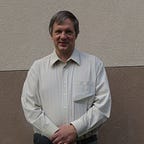Ken. It sounds like you have had a frustrating interesting experience in civic affairs. I would just conjecture that your group is exhibiting the external behaviour demonstrated by political parties. We are learning from them how to resolve issues in what should be a non-partisan environment. Hence, we get the “I’m much smarter than those people who disagree with me” attitude. And I have constantly check myself from this same trait for I know I can get opinionated fairly quickly.
And it is hard to discuss things with people with strong opinions. There is a whole whack of psychological forces at play that prevent people from looking at the “other side.” And when we have become culturally attuned to think that way, that just adds to the rigidness.
Your suggestions are indeed noteworthy. In an ideal world they should work. But my experience is different. Too many people still ride into town on their opinion — and won’t get off. And when enough people have their mind made up, all the communication and experts and logic will not change their mind. And one side’s expert always looks like a paid shill to the other side.
So democracy, as we understand, it more about a contest of strong wills rather than open discussion. The combatants usually work within the rules to determine a winner. This is better than clubbing each other over the head and let the last man standing have his way. But to many of us, there has to be a better way.
And learning and practising this better way cannot be done when too many people have the “I’m smarter than everyone with differing opinions” attitude. And that is why the early TDG needs to start with just a few people with open minds. Closed minds will wreck it.
As I alluded to earlier, I can be a person of strong opinion. One tool that I have learned to check myself is that sometimes my opinion has been wrong. And that goes for everyone — including experts in their own fields. NOBODY is right 100% of the time. So therefore it is important to listen to those opinions who are different because one can gain insights and new perspectives. And as this new understanding builds within each of us, there comes new solutions that neither side could have thought on their own.
And even when this group collective finds these new kinds of decisions, it must realize that these decisions may also prove wrong. These decisions should be regarded as a worthy experiment. No one knows for sure how that experiment will turn out, but it is our best guess. We need to go in that direction to find out. Our decisions should be monitored and changed if needed. If it is wrong, we can learn new things to make a better experiment next time.
This does not mean that I fully agree with where the consensus is going. But if the group wants to go in a certain direction, and I can see is some logic behind their decision, I am willing to try that experiment out. And if the group has seriously considered my perspectives, that too also helps me to step back and not be frustrated.
If I am outside the decision making body and that body makes a decision I don’t like, I will be accepting of that decision if I trust that body to deliberate honestly and thoroughly before coming to their decision.
But all this TDG culture requires training — and a practice forum. Building the TDG is that practice forum. Eventually we will get much better at this kind of decision-making.
Thanks for challenging me on this topic.
